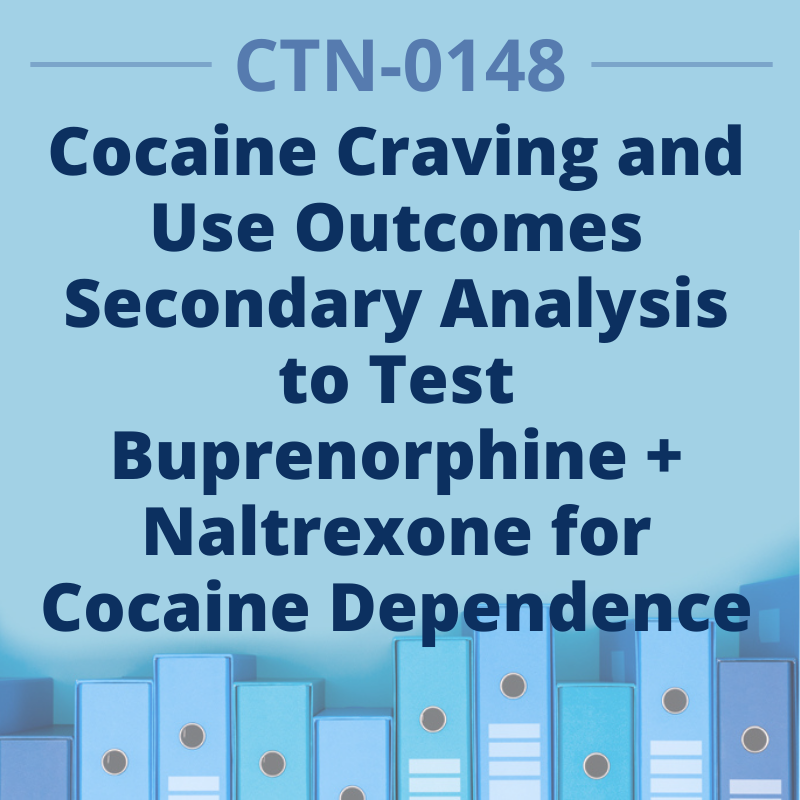CTN-0148: Cocaine Craving and Use Outcomes Secondary Analysis of a Randomized Study to Test the Safety and Effectiveness of Buprenorphine in the Presence of Naltrexone for the Treatment of Cocaine DependenceCTN-0148:

Andrew Saxon, MD
Co-Principal Investigator
University of Washington School of Medicine
asaxon@uw.edu
Sterling McPherson, PhD
Co-Principal Investigator
Washington State University
Elson S. Floyd College of Medicine
smcpherson05@wsu.edu
Crystal Smith, PhD
Co-Principal Investigator
Washington State University
Elson S. Floyd College of Medicine
crystal.lederhos@wsu.edu
Cocaine craving is a core symptom of cocaine use disorder and remains a consistent obstacle to achieving sustained reductions in use and relapse prevention. The literature on the relationship between craving and treatment outcomes is mixed. This study will analyze data from CTN 0048, A randomized study to test the safety and effectiveness of buprenorphine in the presence of naltrexone for the treatment of cocaine dependence. The primary goal of this investigation is to examine relationships between cocaine craving and multiple substance use outcomes while accounting for heterogeneity in both craving and use patterns over time. The study’s specific aims are to examine relationships between: 1) cocaine craving and a) cocaine use, b) UDS, and c) self-reported cocaine use; 2) cocaine craving and cocaine use using the primary outcome of UDS-corrected self-report using finite mixture modeling to uncover possible subgroups made up of different treatment responders; 3) cocaine craving and secondary outcomes of a) treatment retention, b) longest duration of abstinence, and c) Treatment Effectiveness Assessment.
Related Resources
Node Involvement
Lead Node(s):
All Participating Nodes: